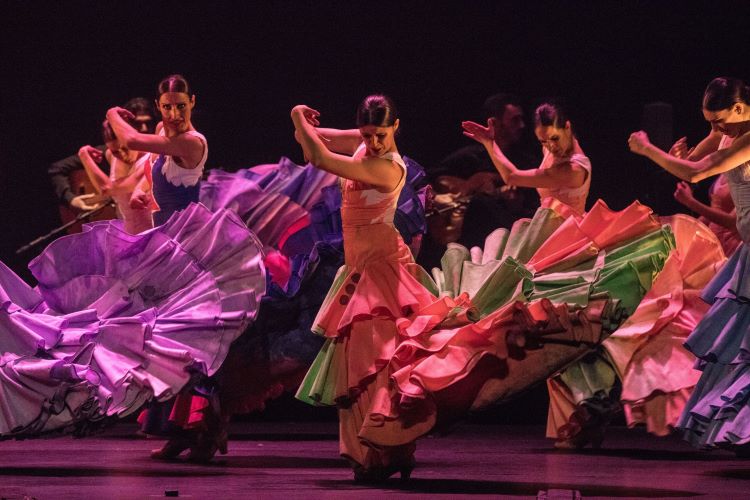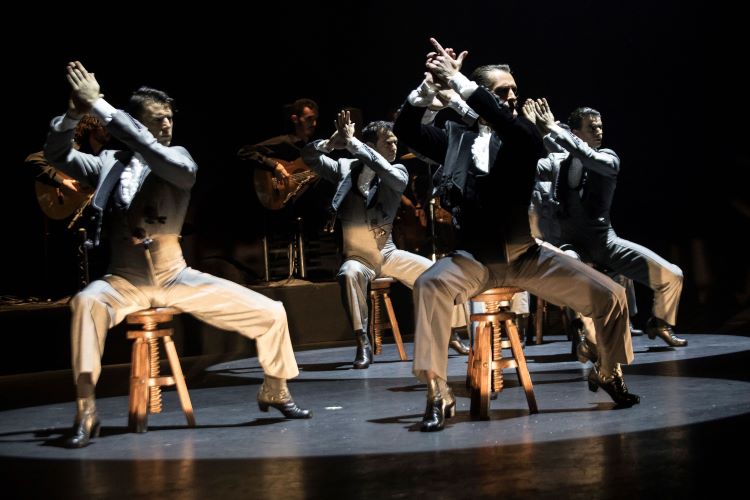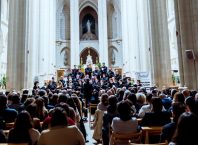
The Ballet Nacional de España returns to perform in Israel at the Israeli Opera with Invocation Bolera, a program of 4 works, representing the unique styles of music and dance from Spain. The first part of the evening’s program will consist of three works.
Invocation Bolera
Choreographed by the company’s Artistic Director Ruben Olmo, with original music composed by Sevillian composer and orchestra director Manuel Busto, Invocation Bolera premiered in March 2020. A colorful work for many dancers, the dance is a tribute to the Bolera School, and the Maestros who defined the genre, from Angel Pericet to Mariemma and Antonio El Bailarin. The Bolera emerged in the late 18th century in Spain, as a style that merged traditional Andalusian folk dances, such as the seguidillas, with classical ballet techniques. Although it declined in popularity in the 19th century, superseded by Flamenco, it remains one of the most characteristic styles of Spanish Dance, accompanied by guitar and castanets. The current work preserves the essence of Bolera, with a contemporary influence.
Jauleña
A solo piece choreographed by Artistic Director Ruben Olmo, Jauleña is set to music composed by Manuel Busto, and will be performed by a different soloist from the company each night. Olmo writes that the inspiration for this work came to him in a village in Granada, where the culture is characterized by the influence of the Christian, Jewish, and Arabic cultures. The dance merges the influences of the Bolera School, elegant, stylized dance, and Flamenco.
Eterna Iberia
Choreographed by Antonio Najarro, to music composed by Manuel Moreno-Buendia. The music had been commissioned by in 1963, Antonio Ruiz Soler ‘El Bailarín’ in 1963, for the Eterna Castilla Ballet. Najarro stated that when he heard the work, “full of melody, hues and rhythm, with overwhelming force, inspired me to create a traditional choreography that would reflect my personal perception of The Spanish Dance, more precisely, in stylized dance.” The Eterna Iberia Ballet is composed of five movements, and employs signature elements of Spanish Dance – castanets, the Spanish Cape, and the Cordobes Hat, as interpreted by stylized dance.
De Lo Flamenco

In the second part of the evening’s program the Ballet Nacional de España will present De Lo Flamenco, a tribute to the dancer and choreographer Mario Maya (1937 – 2008), one of the Grandios Maestros of Spanish Dance. With this work, Maya’s choreography enters the company’s repertoire for the first time. De lo flamenco, is a flamenco suite that reflects the unique style of Mario Maya, founder of the Compañia Andaluza de Danza in 1994, which is the current Ballet Flamenco of Andalucia. At that time, the program that Maya presented was different from anything that had been seen up to then, and even now retains its aura of innovation and distinction. Artistic Director Rubén Olmo stated, “The Maestro Mario was a tireless investigator with everything related to art, a universal referent in the world of dance and of the Flamenco Theatre Andaluz, creator of a very unique and personal style. For this reason, I consider that the Spanish National Ballet (Ballet Nacional de España) should include in its repertoire one of his plays.”
The Ballet Nacional de España was founded by the Spanish Ministry of Culture in 1978, with Antonio Gades as its first artistic director. The purpose of the BNE it to preserve, spread and convey Spain’s rich choreographic heritage, including its diverse styles and traditions, which are represented by different forms: academic, stylised, folklore, bolera, and flamenco. It also works to attract new audiences and boost its national and international scope while being fully independent artistically and creatively. Rubén Olmo has been the director of the Ballet Nacional de España since September 2019.
Performances will take place: Wednesday, July 12th at 20:00; Thursday, July 13th at 20:00; Friday, July 14th at 13:30 and 17:30; Saturday, July 15th at 16:00 and 20:00. Tickets may be ordered online from the Israeli Opera website.
*Information and texts have been provided by a press release.





